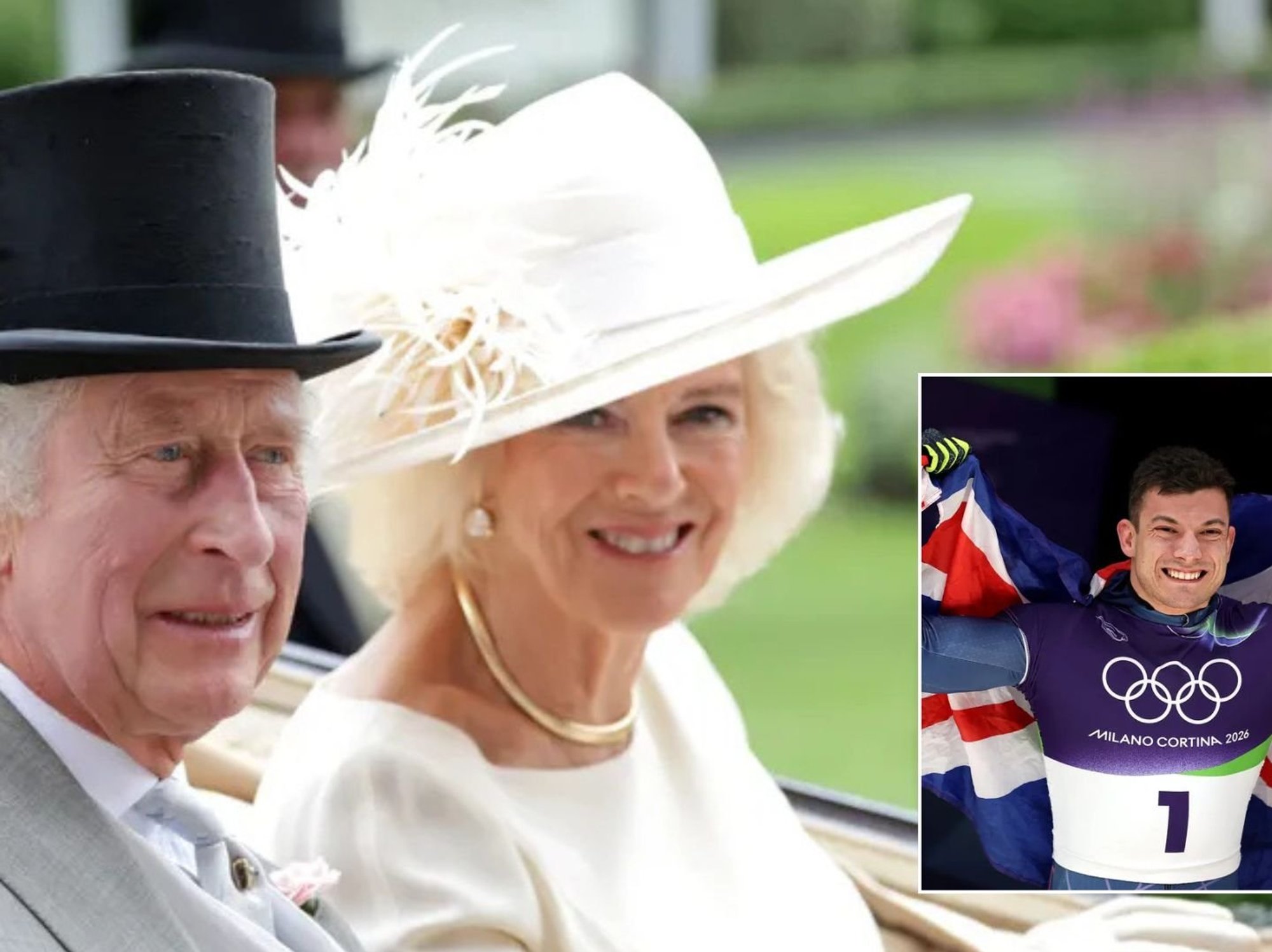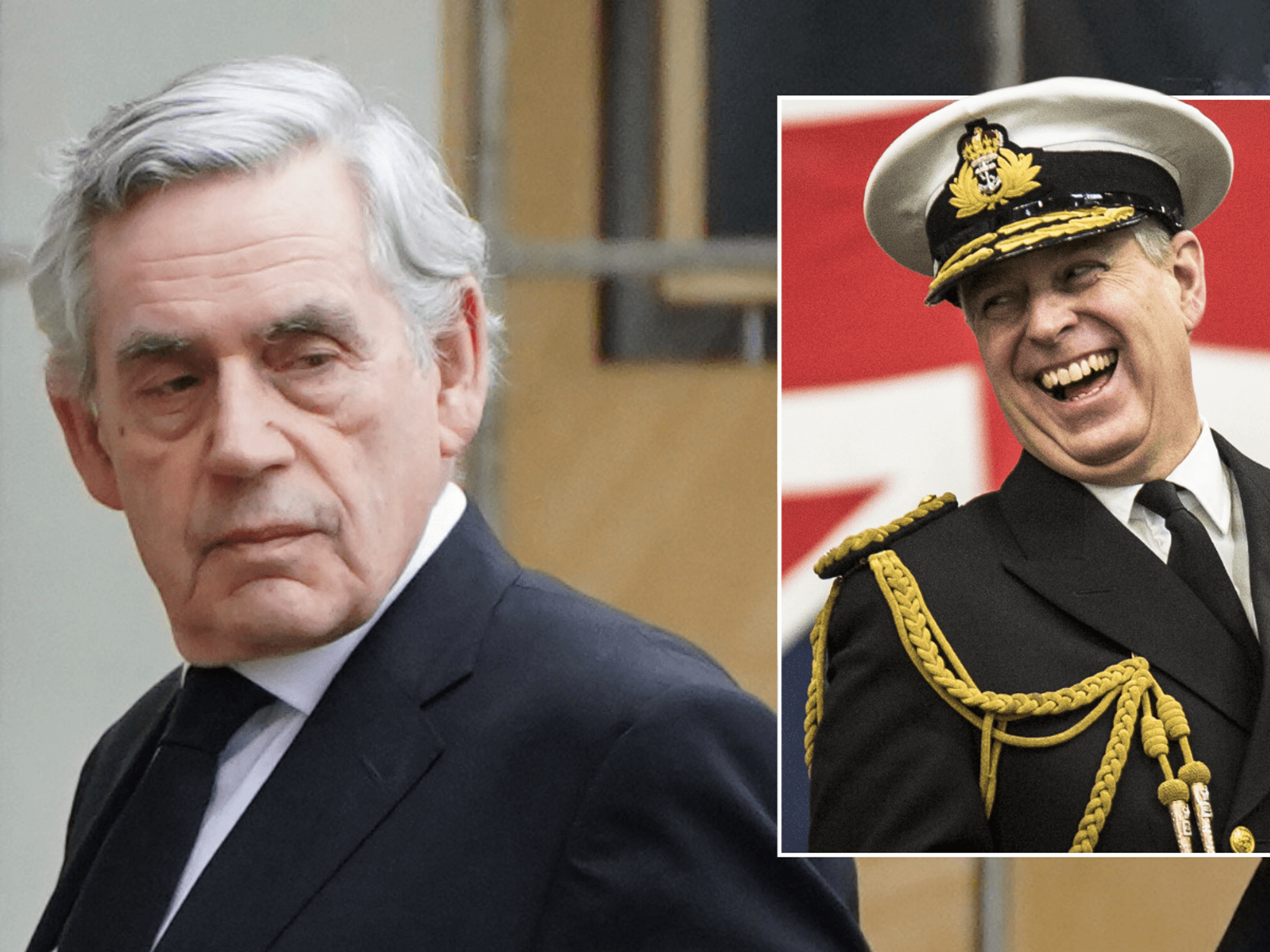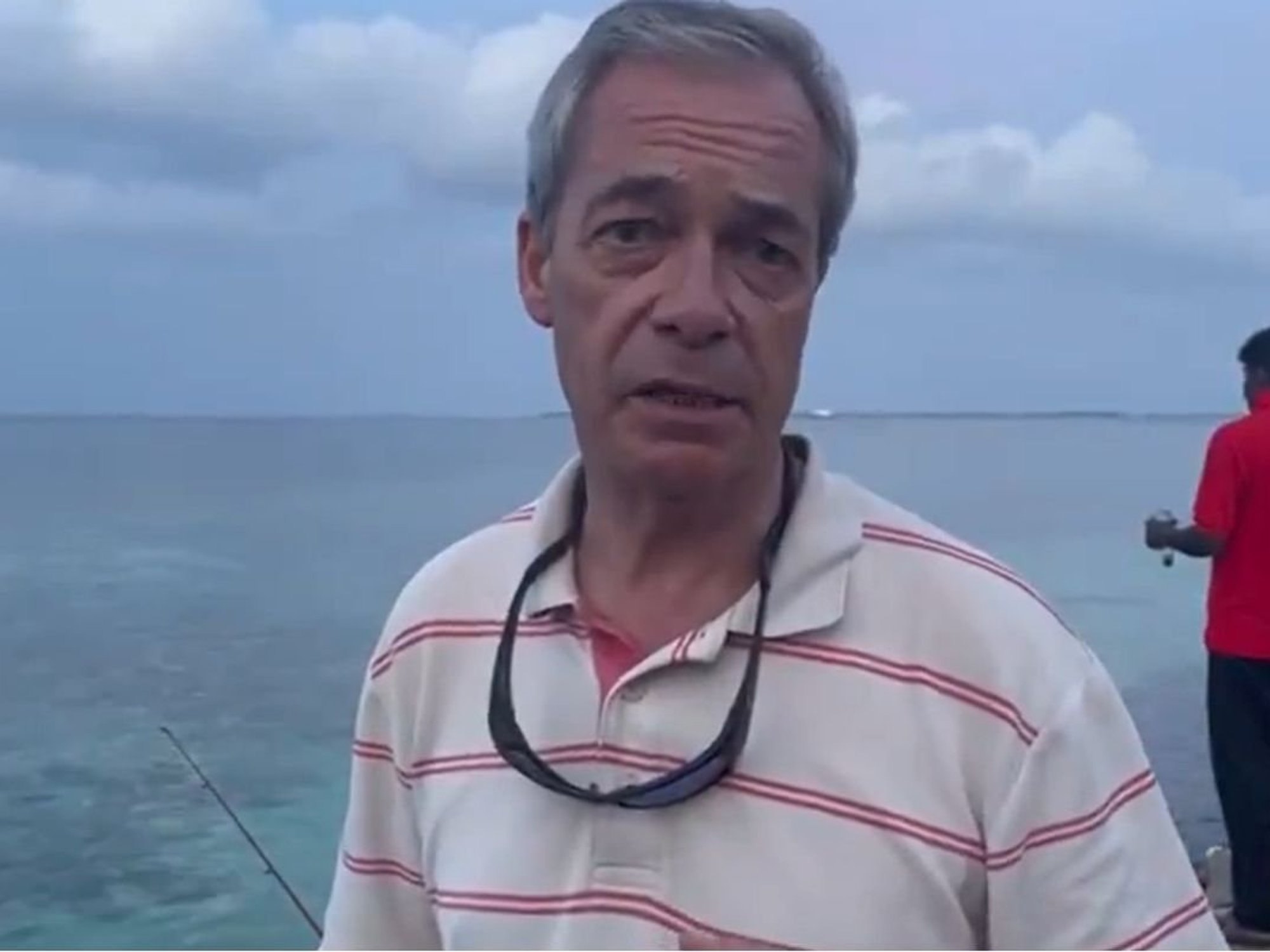Remembrance Day is a reminder that the lion once roared. Now we face state-sponsored amnesia - Alex Story
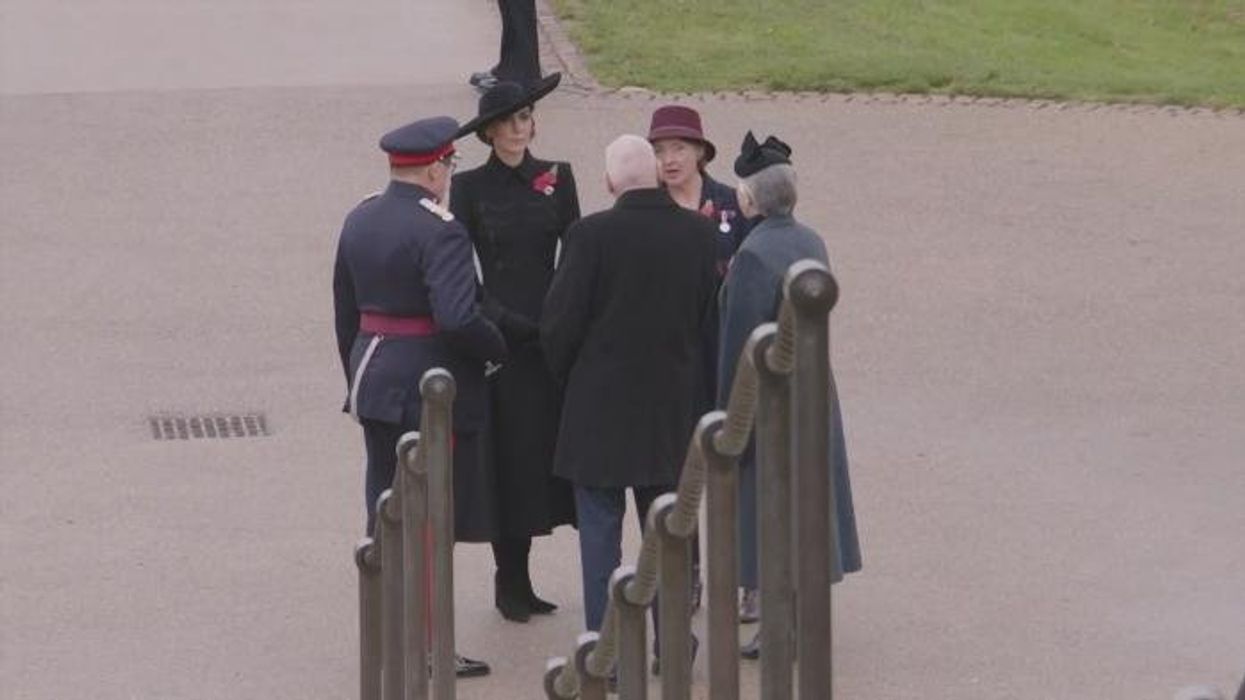
Princess Kate leads nation on Remembrance Day in tribute to fallen heroes |
GB
It is up to us to stop the rot and the deliberate erasure of our past, writes entrepreneur and Olympian Alex Story
Don't Miss
Most Read
Trending on GB News
Societies are defined, in part, by their celebrations.
Two of these expose the cultural battlefield in which we currently stand.
In one corner, sporting the red of the Poppy, we have the withered, dignified but dying Remembrance Day; in the opposite corner, we have the Rainbow coloured indecorous Pride month.
To the first is dedicated a single minute of silence, its centre piece; to the other, officially, the whole month of June.
Unofficially, though, it’s every day of every year.
The theological gap between the two is infinite.
The former celebrates humility, the other, as its name implies, hubris.
Remembrance Day commemorates the making of our country and the costs involved in its survival.
It pays tribute to the acts of selfless sacrifice made by millions of men and boys that fashioned the country, in the crucible of conflicts, large and small, for the defence of the realm, her religion and her people.
Their duty, they felt, was to fight and to die, if need be, to enable their unchosen, and therefore priceless, inheritance to be passed on to future generations whole, unblemished and unsullied by the humiliation of defeat.
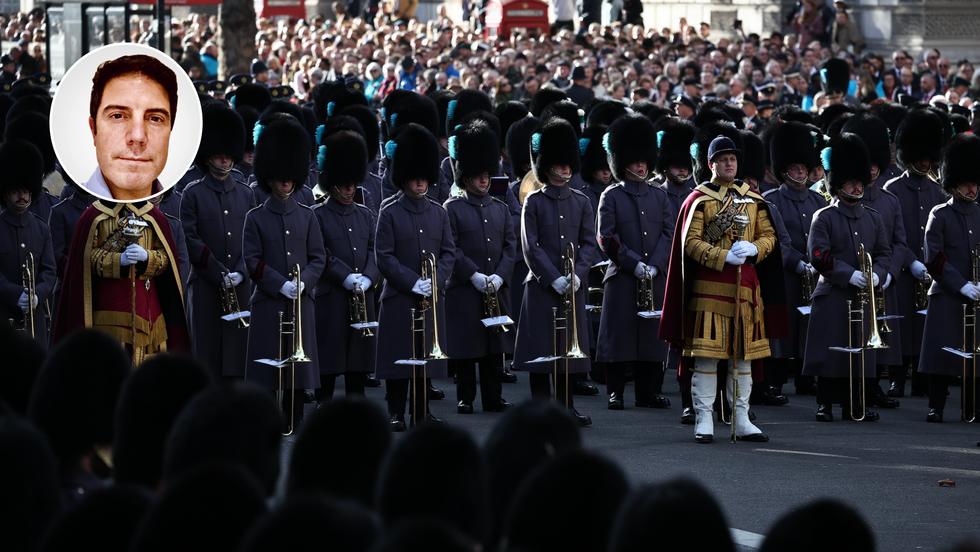
Remembrance Day is a reminder that the lion once roared. Now we face state-sponsored amnesia - Alex Story
|Getty Images
After all, and paradoxically perhaps, you have something to live for when you will die to protect it.
The minute of silence is thus dignity, underpinned by the cardinal virtues of prudence, justice, temperance, fortitude, faith, hope and charity as termed by Saint Ambrose in 378 AD and on which Western Civilisation was so successfully built.
Through it, the voices of our boys, the sacrificial lambs, physically dead but spiritually immortal, whisper a warning and an expectation onto us men, those not yet consecrated, in the pregnant stillness: “Britain needed us, she might need you someday.”
In the silence echoes the Prince of Peace’s voice: “Greater love has no one than this: to lay down one's life for one's friends”.
They loved us before we knew them.
Pride, on the other hand, is the celebration of our deconstruction; a frontal repudiation of two thousand years of our moral history.
We are witnesses, in real time, of the effects of that rejection.
Theologically, as an aside, pride was felt to be the first of seven deadly sins after which wrath, sloth, envy, lust, gluttony and greed inevitably followed, as Saint Gregory elaborated in the 7th century AD, a couple of decades before Mohammed’s revelations.
Pride meant “excessive self-elevation”, or narcissism, then, and so it does today.
The month-long “celebration” doesn’t ask for our consent; it demands our submission.
The ideas to which it mandates we genuflect are the ultimate postmodern lies.
One of the most egregious examples is to have turned sex into a choice, not a biological fact, physically destroying thousands of children as the tip of the Tavistock iceberg cases revealed.
Like the pre-Christian pagan religions of ancient Rome, our new priests happily sacrifice others on the altar of their own aggrandising self-righteousness.
Further, the movement, like all Maoist or Salafist ones, brooks no dissent.
So cocksure is it that it brushed aside the recent Supreme Court Judgement, clarifying that men and women were biologically different.
Our bureaucrats, not least in our prisons and hospital wards, continue to allow men to “identify” as women on their premises.
This self-confidence is due to the new “Pride” theology having conquered much of our body politic.
It, in fact, became our new de facto constitution, with the passing of the 2004 Gender Recognition and the 2010 Equality Acts.
The old 1689 Bill of Rights, based on the principles of the Gospel as Edmund Burke often reminded us, was ruthlessly replaced in the silent Blairite and Brownite coup, and further embedded over the course of the successive Tory administrations.
Always off balance, as it threatens to spin out of control, it must attack its target, us, constantly, on every front to find stability.
More fundamentally, Pride and its celebrations, in total contrast to Remembrance Day, reject the past as evil, disarming us as we are mandated to forget its costly lessons.
It believes it can control the future.
Through this lens, reality is an obstacle to be ignored if Man’s nature is to be successfully changed.
Truth is, thus, the enemy, and facts are an inconvenience.
Emotions, feelings and deception are its tools.
If Remembrance Day is about our collective memory, Pride month is about state-sponsored amnesia.
Caving into Pride and allowing the post-modernist assumption to dominate our state, we have watched our self-respect, dignity and discipline dwindle and disappear.
As Saint Gregory might have foreseen, we, as a nation, have been forced to bow to the first of all sins only to give in to all the others.
Having allowed our theological inheritance to be undermined, our national foundations are, at best, shaky.
Worse, the embers of patriotism are gradually dimming to extinction.
It is not surprising then that many surviving veterans openly say that, with the benefit of hindsight, “the sacrifice wasn't worth the result”, as 100-year-old Alec Penstone did a few days ago on ITV’s Good Morning Britain.
Many impartial observers would have nodded in agreement, remembering the words author Taylor Caldwell attributed to Cicero, the Roman orator, in her 1965 novel A Pillar of Iron that a nation “cannot survive treason from within”.
The traitor, Cicero expounds in the novel, “speaks in accents familiar to his victims, and he wears their face and their arguments, he appeals to the baseness that lies deep in the hearts of all men” and “rots the soul of a nation”, infecting “the body politic so that it can no longer resist”.
It is up to us, therefore, to stop the rot and the deliberate erasure of our past.
We must allow the voices of our fallen heroes, in the minute given to us, to stir our hearts, reminding us and our children that there was once a time when the Lion did roar.
It might do so again, if we all step into the breach.
Our Standards: The GB News Editorial Charter
More From GB News






